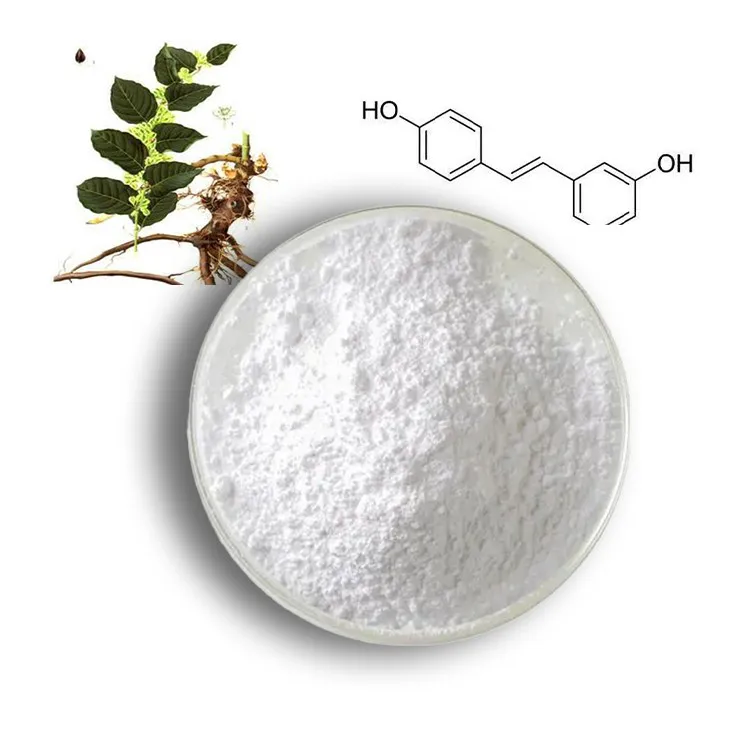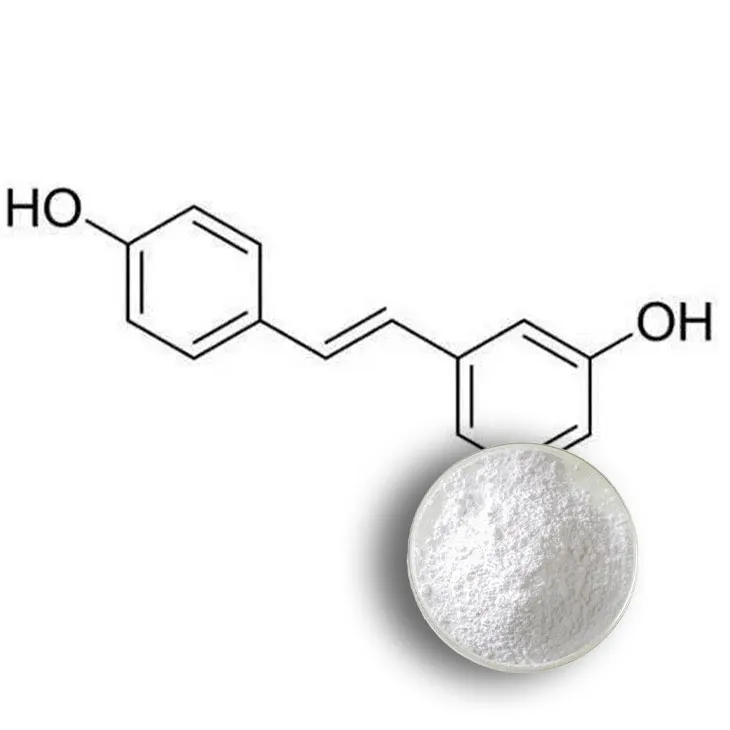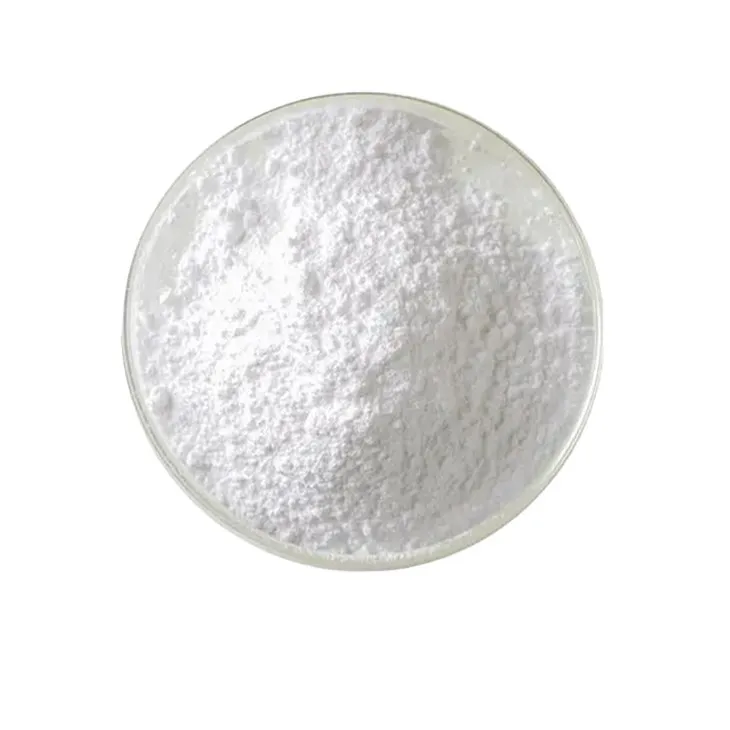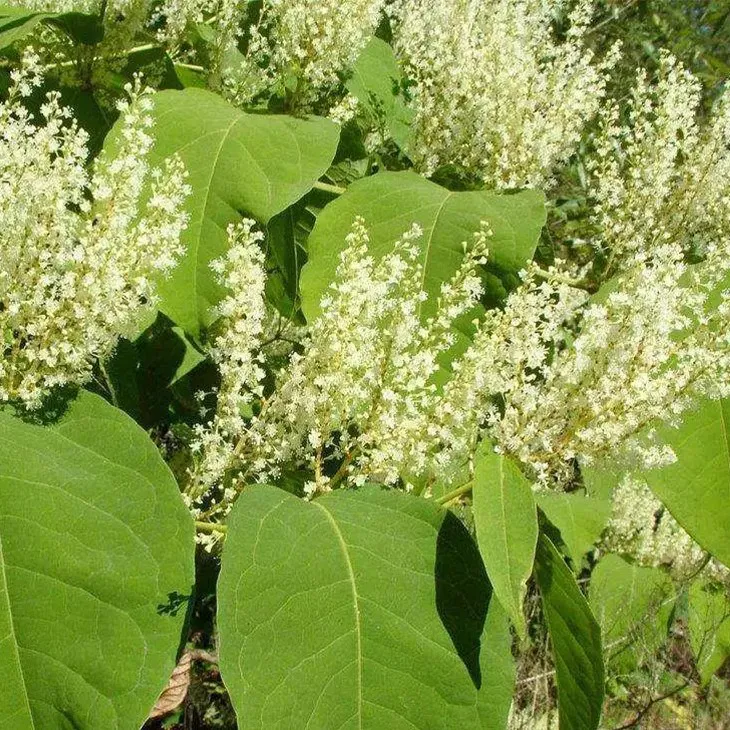- 0086-571-85302990
- sales@greenskybio.com
14 Major Health - care Efficacy of Resveratrol Extracts.
2024-11-12

1. Introduction to Resveratrol
Resveratrol is a natural compound that has been garnering significant attention in the field of health and wellness. It is predominantly found in various plants, with grape skins being one of the richest sources. This polyphenolic compound is also present in other fruits, such as berries, and in some nuts. Resveratrol is synthesized by plants as a part of their defense mechanism against environmental stressors like fungal infections and UV radiation.

2. Anti - cancer Properties
2.1. Inhibition of Cancer Cell Growth
- Resveratrol has shown potential in inhibiting the growth of cancer cells. It does this by interfering with the cell cycle progression of cancerous cells. For example, in breast cancer cells, resveratrol can block the cells at specific checkpoints in the cell cycle, preventing their uncontrolled division.
- It also targets various signaling pathways that are often dysregulated in cancer. For instance, the PI3K - Akt - mTOR pathway, which is involved in cell survival, growth, and proliferation, can be modulated by resveratrol. By inhibiting this pathway, resveratrol can induce apoptosis (programmed cell death) in cancer cells.
- Chronic inflammation is closely associated with the development and progression of cancer. Resveratrol has anti - inflammatory properties, which can help in reducing the inflammatory microenvironment that promotes cancer growth.
- It can downregulate the expression of pro - inflammatory cytokines such as TNF - α (tumor necrosis factor - alpha) and IL - 6 (interleukin - 6). By doing so, resveratrol may prevent the initiation and spread of cancer cells.

3. Enhancing Immune Function
3.1. Modulation of Immune Cells
- Resveratrol can influence the function of immune cells. It has been shown to enhance the activity of macrophages, which are key immune cells responsible for phagocytosis (engulfing and destroying foreign substances). Macrophages treated with resveratrol can better clear pathogens and cellular debris.
- T - lymphocytes, another important part of the immune system, can also be affected by resveratrol. It can help in regulating the balance between different subsets of T - cells, such as helper T - cells and cytotoxic T - cells, thereby optimizing the immune response.
- As an antioxidant, resveratrol can protect immune cells from oxidative stress. Oxidative stress can damage immune cells and impair their function. By scavenging free radicals, resveratrol helps to maintain the integrity and functionality of immune cells.
- It also supports the production of antioxidant enzymes within immune cells, such as superoxide dismutase (SOD) and glutathione peroxidase (GSH - Px). These enzymes play a crucial role in neutralizing reactive oxygen species and protecting the immune system.

4. Improving Metabolic Health
4.1. Regulation of Blood Sugar
- Resveratrol can help in regulating blood sugar levels. It improves insulin sensitivity in cells, allowing cells to better respond to insulin and take up glucose from the bloodstream. This is beneficial for individuals with type 2 diabetes or those at risk of developing diabetes.
- It also has an impact on glucose metabolism in the liver. Resveratrol can inhibit hepatic gluconeogenesis (the production of new glucose in the liver), which helps in maintaining stable blood sugar levels.
- When it comes to lipid metabolism, resveratrol can reduce the levels of triglycerides in the blood. It promotes the breakdown of triglycerides in adipose tissue and their subsequent utilization for energy production.
- Regarding cholesterol, resveratrol has the potential to lower LDL - cholesterol (the "bad" cholesterol) levels while maintaining or even increasing HDL - cholesterol (the "good" cholesterol) levels. This helps in improving the overall lipid profile and reducing the risk of cardiovascular diseases.

5. Cardiovascular Protection
5.1. Anti - atherosclerotic Effects
- Resveratrol can prevent the formation of atherosclerotic plaques. It inhibits the oxidation of LDL - cholesterol, which is a key step in the development of atherosclerosis. Oxidized LDL - cholesterol is more likely to be taken up by macrophages in the artery walls, leading to the formation of fatty streaks and eventually plaques.
- It also has anti - inflammatory effects on the vascular endothelium. By reducing inflammation, resveratrol helps to maintain the health of the endothelial cells lining the blood vessels, preventing the initiation and progression of atherosclerosis.
- Resveratrol can play a role in regulating blood pressure. It may relax blood vessels by increasing the production of nitric oxide (NO). Nitric oxide is a vasodilator that widens blood vessels, reducing peripheral resistance and thereby lowering blood pressure.
- It also has an impact on the renin - angiotensin - aldosterone system (RAAS), which is an important regulator of blood pressure. Resveratrol can inhibit the activity of this system, further contributing to blood pressure control.
6. Anti - aging Effects
6.1. Telomere Protection
- Telomeres are the protective caps at the ends of chromosomes that shorten with each cell division. Resveratrol has been shown to protect telomeres from shortening too rapidly. By doing so, it may delay cellular senescence (the aging of cells) and potentially extend the lifespan of cells.
- It can also increase the activity of telomerase, an enzyme that is responsible for maintaining telomere length. This helps in keeping the chromosomes stable and the cells in a more youthful state.
- Mitochondria are the powerhouses of the cell, and their function declines with age. Resveratrol can improve mitochondrial function by enhancing oxidative phosphorylation, the process by which cells generate energy. This helps in maintaining cellular energy levels and overall cell vitality.
- It also has a role in reducing mitochondrial oxidative stress. By protecting mitochondria from oxidative damage, resveratrol can slow down the aging process at the cellular level.
7. Neuroprotective Benefits
7.1. Protection Against Neurodegenerative Diseases
- Resveratrol shows promise in protecting against neurodegenerative diseases such as Alzheimer's and Parkinson's. In Alzheimer's disease, it can reduce the accumulation of amyloid - beta plaques, which are characteristic of the disease. It does this by promoting the clearance of amyloid - beta and inhibiting its production.
- In Parkinson's disease, resveratrol can protect dopaminergic neurons from damage. It may act by reducing oxidative stress and inflammation in the brain, which are key factors in the pathogenesis of Parkinson's disease.
- Resveratrol can enhance cognitive function. It has been shown to improve memory and learning abilities in animal studies. This may be due to its effects on synaptic plasticity, which is the ability of synapses (connections between neurons) to change and adapt.
- It also has an impact on brain - derived neurotrophic factor (BDNF), which is important for the growth, survival, and differentiation of neurons. Resveratrol can increase BDNF levels in the brain, thereby promoting neuronal health and cognitive function.
8. Anti - oxidative Stress
8.1. Free Radical Scavenging
- Resveratrol is a powerful antioxidant that can scavenge free radicals. Free radicals are highly reactive molecules that can cause damage to cells, DNA, and proteins. Resveratrol can donate electrons to free radicals, neutralizing them and preventing them from causing oxidative damage.
- It can target different types of free radicals, including superoxide anions, hydroxyl radicals, and peroxyl radicals. This broad - spectrum antioxidant activity makes resveratrol effective in protecting cells from various oxidative stressors.
- Resveratrol can upregulate the expression of antioxidant enzymes in cells. These enzymes, such as catalase, glutathione reductase, and heme oxygenase - 1, play an important role in the body's antioxidant defense system. By increasing the levels of these enzymes, resveratrol helps to enhance the body's ability to neutralize free radicals.
- It also has a role in maintaining the redox balance in cells. The redox balance is crucial for normal cell function, and resveratrol can help to keep it in a proper state by regulating the production and activity of antioxidant and pro - oxidative enzymes.
9. Anti - inflammatory Properties
9.1. Inhibition of Pro - inflammatory Mediators
- Resveratrol can inhibit the production of pro - inflammatory mediators. It can reduce the expression of cyclooxygenase - 2 (COX - 2) and inducible nitric oxide synthase (iNOS), which are enzymes involved in the production of inflammatory mediators such as prostaglandins and nitric oxide, respectively.
- It also has an impact on the nuclear factor - kappa B (NF - κB) pathway, which is a key regulator of inflammation. Resveratrol can inhibit the activation of NF - κB, thereby reducing the production of a wide range of pro - inflammatory cytokines and chemokines.
- Resveratrol can help in resolving inflammatory responses. It promotes the production of anti - inflammatory mediators such as resolvins and protectins. These molecules play a crucial role in the resolution phase of inflammation, helping to restore normal tissue function.
- It can also modulate the activity of immune cells involved in inflammation, such as neutrophils and macrophages, to promote the clearance of inflammatory cells and debris and the repair of damaged tissues.
10. Skin Health Improvement
10.1. Protection Against UV - induced Damage
- Resveratrol can protect the skin against UV - induced damage. It can absorb UV radiation to some extent, reducing the amount of UV - induced free radical production in the skin.
- It also has anti - inflammatory and antioxidant properties that can help in reducing the damage caused by UV radiation. For example, it can prevent the UV - induced activation of NF - κB in skin cells, reducing inflammation and the production of matrix metalloproteinases (MMPs), which are enzymes that can break down collagen and elastin in the skin.
- Resveratrol can have anti - aging effects on the skin. It can stimulate the production of collagen and elastin in the skin, which are important for maintaining skin elasticity and firmness.
- It also has antioxidant properties that can protect skin cells from oxidative damage, reducing the appearance of wrinkles and fine lines.
11. Bone Health Promotion
11.1. Osteoblast Stimulation
- Resveratrol can stimulate osteoblasts, which are cells responsible for bone formation. It can increase the activity of osteoblasts, promoting the synthesis of bone matrix proteins such as collagen type I and osteocalcin.
- It also has an impact on the signaling pathways involved in osteoblast differentiation. For example, it can activate the Wnt/β - catenin pathway, which is important for osteoblastogenesis.
- Resveratrol can inhibit osteoclasts, which are cells responsible for bone resorption. It can reduce the activity of osteoclasts by interfering with the signaling pathways involved in osteoclastogenesis, such as the receptor activator of nuclear factor - kappa B ligand (RANKL) pathway.
- By inhibiting osteoclasts and stimulating osteoblasts, resveratrol can help in maintaining bone mass and preventing bone diseases such as osteoporosis.
12. Gut Health Improvement
12.1. Microbiota Modulation
- Resveratrol can modulate the gut microbiota. It can increase the abundance of beneficial bacteria such as Bifidobacterium and Lactobacillus in the gut. These bacteria play important roles in maintaining gut health, such as improving digestion, enhancing the immune system, and protecting against pathogens.
- It can also reduce the abundance of harmful bacteria in the gut. By modulating the gut microbiota, resveratrol can have a positive impact on overall gut health and potentially on systemic health as well.
- Resveratrol can enhance the intestinal barrier function. It can increase the expression of tight junction proteins in the intestinal epithelium, which helps to prevent the leakage of harmful substances from the gut lumen into the bloodstream.
- It also has anti - inflammatory properties in the gut, which can help in reducing intestinal inflammation and maintaining the integrity of the intestinal barrier.
13. Anti - diabetic Effects
13.1. Insulin Sensitization
- As mentioned earlier, resveratrol can improve insulin sensitivity. This is crucial for individuals with diabetes as it allows cells to better respond to insulin and regulate blood sugar levels more effectively.
- It can also enhance the function of pancreatic beta - cells, which are responsible for insulin secretion. By protecting beta - cells from damage and promoting their proper function, resveratrol can contribute to better glycemic control.
- Resveratrol can regulate glucose uptake in cells. It can increase the translocation of glucose transporters (such as GLUT4) to the cell membrane, facilitating the uptake of glucose into cells.
- It also has an impact on glucose metabolism in various tissues, such as muscle and liver. In muscle tissue, it can promote glycolysis (the breakdown of glucose), while in the liver, it can inhibit gluconeogenesis as mentioned before.
14. Conclusion
Resveratrol extract offers a wide range of health benefits, from anti - cancer and anti - aging properties to improvements in metabolic, cardiovascular, and neurological health. However, more research is still needed to fully understand its mechanisms of action and to determine the optimal dosage and form of resveratrol for different health conditions. Despite this, the potential of resveratrol as a natural supplement for promoting health and preventing diseases is quite promising.
FAQ:
What is Resveratrol extract?
Resveratrol extract is a compound obtained from plants, particularly abundant in grape skins. It has been studied for its numerous potential health benefits.
How does resveratrol extract enhance immune function?
Resveratrol extract may enhance immune function by modulating the activity of immune cells. It can influence the production of cytokines, which are important signaling molecules in the immune system. This helps in a more efficient response to pathogens and may also play a role in immune regulation.
Can resveratrol extract really protect against cancer?
There is evidence to suggest that resveratrol extract may have anti - cancer properties. It can interfere with the growth and spread of cancer cells in several ways. For example, it may induce apoptosis (programmed cell death) in cancer cells, inhibit angiogenesis (formation of new blood vessels that tumors need to grow), and modulate the activity of certain enzymes involved in carcinogenesis. However, more research is still needed to fully understand its role in cancer prevention and treatment.
How does resveratrol extract improve metabolic health?
Resveratrol extract can improve metabolic health by influencing various metabolic processes. It may enhance insulin sensitivity, which helps in better regulation of blood sugar levels. It can also affect lipid metabolism, potentially reducing cholesterol levels and improving the lipid profile. Additionally, it may play a role in increasing energy expenditure and promoting a healthier body composition.
Are there any side effects of resveratrol extract?
In general, when taken in appropriate doses, resveratrol extract is considered safe for most people. However, some people may experience mild side effects such as digestive issues, including nausea, diarrhea, or stomach discomfort. High - dose or long - term use may also have potential interactions with medications, so it is important to consult a healthcare provider before starting supplementation.
Related literature
- Resveratrol: A Review of its Anti - Cancer Effects"
- "The Role of Resveratrol in Metabolic Syndrome"
- "Resveratrol and Immune Function: Current Knowledge and Future Perspectives"
- ▶ Hesperidin
- ▶ citrus bioflavonoids
- ▶ plant extract
- ▶ lycopene
- ▶ Diosmin
- ▶ Grape seed extract
- ▶ Sea buckthorn Juice Powder
- ▶ Beetroot powder
- ▶ Hops Extract
- ▶ Artichoke Extract
- ▶ Reishi mushroom extract
- ▶ Astaxanthin
- ▶ Green Tea Extract
- ▶ Curcumin Extract
- ▶ Horse Chestnut Extract
- ▶ Other Problems
- ▶ Boswellia Serrata Extract
- ▶ Resveratrol Extract
- ▶ Marigold Extract
- ▶ Grape Leaf Extract
- ▶ blog3
- ▶ blog4
- ▶ blog5
-
Organic Tongkat Ali extract powder factory.
2024-11-12
-
How to make powder with ashwagandha extract.
2024-11-12
-
Rosehip extract manufacturers from China.
2024-11-12
-
The best cat's claw extract in nature.
2024-11-12
-
Chinese Dandelion Leaf Extract Suppliers.
2024-11-12
-
Thunder God Vine Extract
2024-11-12
-
Centella Asiatica Extract
2024-11-12
-
Grape Leaf Extract
2024-11-12
-
Oyster Mushroom Extract Powder
2024-11-12
-
Coix Seed Extract
2024-11-12
-
Clove Powder
2024-11-12
-
Horse Chestnut Extract
2024-11-12
-
Diosmin
2024-11-12
-
Nutmeg Extract
2024-11-12
-
Elderberry Extract
2024-11-12





















